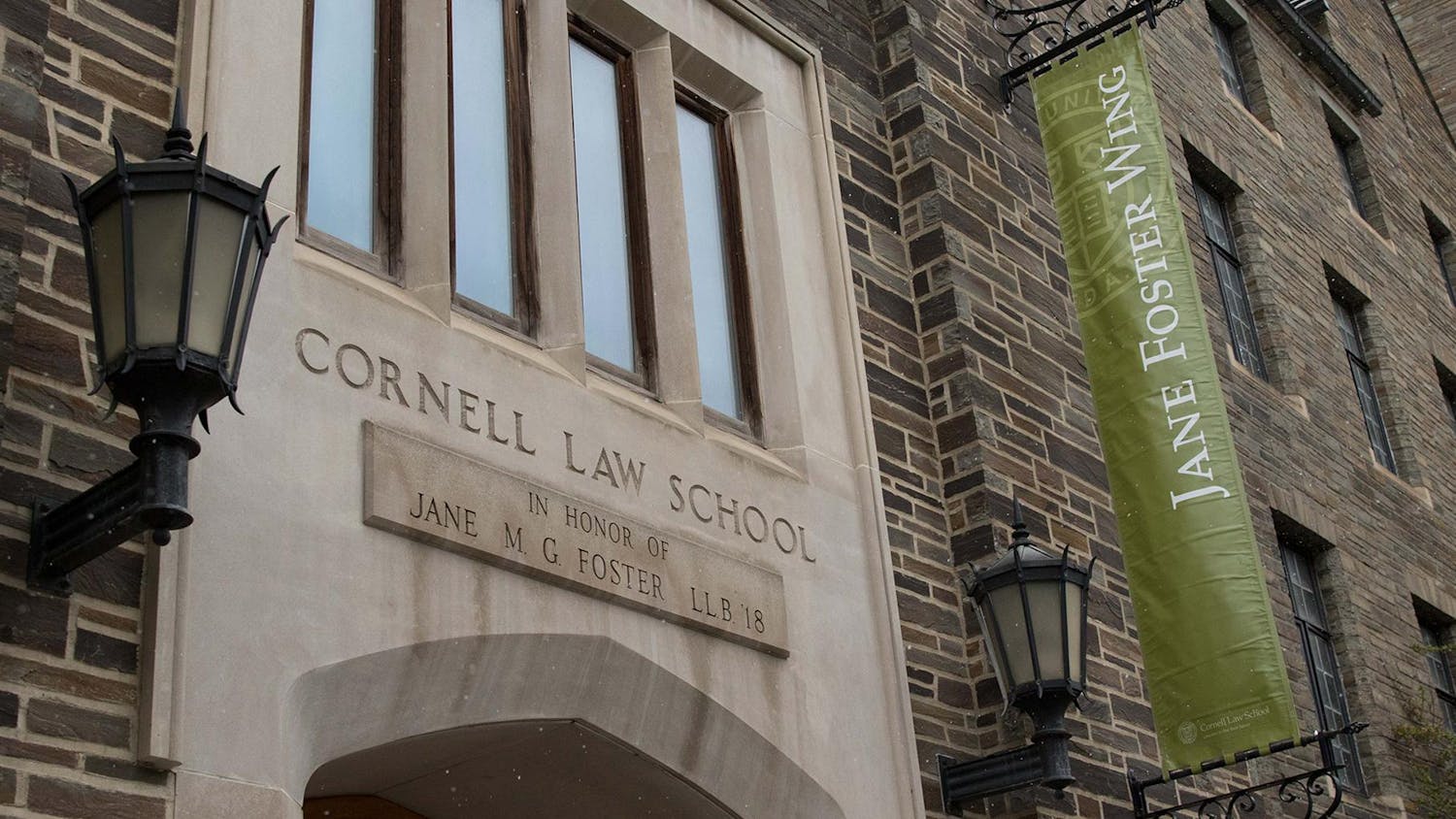On Feb. 1, Cornell’s Society of Polish Students welcomed Marek Magierowski, Polish ambassador to the United States, to give a virtual lecture on Polish-Ukrainian relations amidst the Russo-Ukrainian War.
After leaving journalism in October 2015, Magierowski embarked on an extensive career in international politics by obtaining a position within the Polish government. Magierowski then served as undersecretary of state at Poland’s Ministry of Foreign Affairs and ambassador to Israel until 2021, when Magierowski became Polish Ambassador to the United States.
Julia Pienkowska ’23, organizer of the event and member of the Society of Polish Students, stated that she found the lecture informative.
“He took a pragmatic approach, elaborating on Putin's wartime failures but recognizing that Russia is a powerful country that is not easy to beat,” Pienkowska said.
Magierowski began his lecture by describing the legacy shared by Poland and Ukraine. Both countries served as a former constituent to the defunct Eastern Bloc, as Ukraine is a former Soviet republic and Poland was a Soviet satellite. According to Magierowski, this shared history brought the countries into an amicable alliance against Russia.
When discussing Russia, Magierowski drew comparisons between the Cold War-era Soviet-American relations and the modern day.
“For [Russia], diplomacy is a zero-sum game, someone has to win in order for someone else to be crushed, to be irreversibly and painfully defeated,” Magierowski said. “This is something we heard in the ’60s. And this is something we heard in the ’70s, in the ’80s, on the eve of the Soviet Union's collapse and what we can hear, even today — still a zero-sum game.”
Magierowski stated that not much has changed in contemporary Russia in comparison with the late Soviet Union, as diplomatic hostility towards the United States and the West in general continued even after the USSR’s fall in 1991.
According to Magierowski, Russia’s zero-sum foreign policy has been proven by international law violations at the war’s front lines, including Putin’s indiscriminate bombings of Ukrainian civilians and the mistreatment of human bodies using mobile crematoriums.
Magierowski found that the United States’ perception of Russia’s military power is still nebulous, despite the abundance of information on the war. He spoke to Gen. James Mattis, who served as the secretary of defense under President Donald Trump (R-Fla.), and learned that the West had once overestimated Putin’s military prowess. However, following numerous Russian failures leading to a stalemate in Ukraine, Magierowski expects that intelligence agencies are now beginning to underestimate Russian power.
Despite Putin’s relentless political attacks on Ukraine, Magierowski pointed out how these attacks have repeatedly backfired. He stated that rather than diminishing the Ukrainian identity, Putin’s actions have caused the West to become more aware of Ukraine and its cultural identity. NATO membership has also expanded, with Sweden and Finland applying for official membership.
Magierowski returned to the topic of Polish-Ukrainian relations, highlighting the crucial role that Poland has held for assisting Ukrainian refugees. The population of Poland has increased from roughly 38 million to roughly 40 million due to the influx of Ukrainian and Russian refugees, and more than 200,000 Ukrainian children have been integrated into the school system. Magierowski attributed the Ukrainians’ easy assimilation into Polish society to cultural and linguistic similarities.
Magierowski said that Poland also wishes to shift its image from being a net recipient of security to a net provider of security for European powers. He used the country’s reliance on American military manufacturing as an example, stating that Poland is attempting to become self-reliant due to worries that they will not keep up with the war’s rapid pace.
Despite making acknowledgements that Ukraine may very well lose the war and keep a realistic outlook on its outcome due to Russia’s nuclear arsenal, Magierowski nonetheless held out hope that the Ukrainians could pull off an unlikely victory.
“When I'm talking about the vestiges of the Soviet mentality in today's Russia, blatant disregard for human life and for human dignity, especially in the times of war, for Mr. Putin, human life is irrelevant,” Magierowski said. “That’s why I'm not terribly optimistic about the course of this war, because I believe President Putin can still flood Ukraine with men and cannon fodders, because again, their treatment of human life.”
To conclude his lecture, Magierowski addressed concerns that Russia would use nuclear weapons against Ukraine or a Western country.
“I don't believe that Putin will dare use nuclear weapons against either Ukraine or other countries in Europe,” Magierowski said. “Nevertheless, I believe that the only thing that President Putin has nuked so far is Russia's reputation on the international stage.”
Following the event, Amelia Okulewicz ’26, a SPS member, echoed Pienkowska’s feelings.
“[Magierowski] truly led us through history and current events for us to gauge a better understanding of what the conflict looks like,” Okulewicz said.
Isabela Wilson ’26 is a Sun contributor. She can be reached at ivw6@cornell.edu.
Jonathan Mong ’25 contributed reporting.











